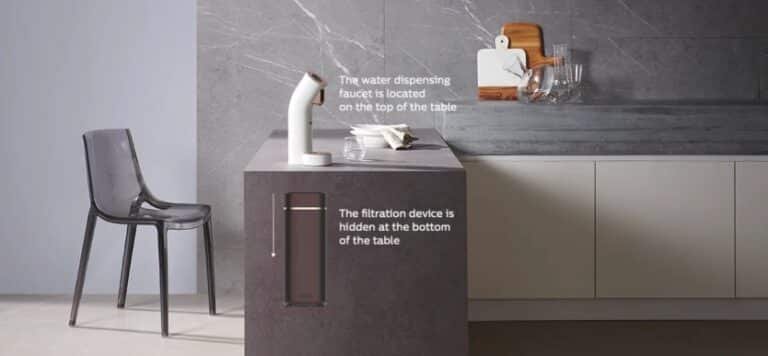Access to clean and safe drinking water is a basic need for every household. In Malaysia, because the quality of water varies significantly depending on the environment and infrastructure challenges, investing in a reliable water filter is important. In this comprehensive guide, the best water filters available in Malaysia will be reviewed, covering several types and their features, including how to choose the right one for your home.
Why Do You Need a Water Filter?
Water filters are essential in Malaysian tap water due to impurities like chlorine, heavy metals, bacteria, and sediments. They improve taste and odor, eliminate contaminants, and protect health by preventing gastrointestinal diseases. A quality filter removes harmful substances, making drinking water safer and more enjoyable. Regular consumption of contaminated water can lead to health issues.
Types of Water Filters
There are several types of water filters available in the Malaysian market, each with its own advantages and disadvantages. Here’s a breakdown of the most common types:
1. Activated Carbon Filters
How They Work: Activated carbon filters use charcoal to absorb impurities. The porous structure of activated carbon traps contaminants, improving water quality.
Pros:
- Effective at removing chlorine, sediment, and volatile organic compounds (VOCs).
- Affordable and easy to install.
- Improves taste and odor.
Cons:
- Not effective against heavy metals or microorganisms.
- Requires regular replacement of filters.
2. Reverse Osmosis (RO) Systems
How They Work: RO systems use a semi-permeable membrane to remove a wide range of contaminants, including heavy metals, salts, and microorganisms.
Pros:
- Highly effective at purifying water.
- Removes up to 99% of contaminants.
- Produces clean drinking water.
Cons:
- More expensive than other types.
- Slower filtration rate.
- Requires regular maintenance.
3. Ultraviolet (UV) Purifiers
How They Work: UV purifiers use ultraviolet light to kill bacteria and viruses in the water, making it safe to drink.
Pros:
- Effective against microorganisms.
- Chemical-free process.
- Maintains the water’s mineral content.
Cons:
- Does not remove chemical contaminants or sediments.
- Requires electricity to operate.
4. Ceramic Filters
How They Work: Ceramic filters use a porous ceramic material to filter out bacteria and sediments from the water.
Pros:
- Effective at removing bacteria and sediments.
- Long-lasting and easy to clean.
- No electricity required.
Cons:
- Limited effectiveness against viruses and chemical contaminants.
- Slower filtration speed.
5. Water Distillers
How They Work: Water distillers boil water and then condense the steam back into liquid, leaving contaminants behind.
Pros:
- Removes a wide range of contaminants, including heavy metals and chemicals.
- Produces very pure water.
Cons:
- Slow process and requires electricity.
- Removes beneficial minerals from water.
Key Features to Consider
When selecting a water filter for your Malaysian home, consider the following features:
1. Filtration Capability
Determine what contaminants you need to remove from your water. If you are concerned about heavy metals, a reverse osmosis system may be your best bet, while activated carbon filters excel at improving taste and odor.
2. Installation and Maintenance
Consider whether you prefer a filter that requires professional installation (like many RO systems) or one that is easy to install yourself. Additionally, check how often you will need to replace filters and the associated costs.
3. Flow Rate
The flow rate refers to how quickly the filter can produce clean water. If you have a large family or use a lot of water, look for filters that can handle higher flow rates.
4. Size and Design
Consider the space available in your kitchen or wherever you plan to install the filter. Some systems are compact and fit easily under the sink, while others may take up more space.
5. Certifications
Look for filters that have been certified by recognized organizations like NSF International or the Water Quality Association. These certifications ensure that the filter meets specific performance standards.
Conclusion
Choosing the right water filter for your Malaysian home is crucial for ensuring the health and safety of your family. With various options available, from activated carbon filters to advanced reverse osmosis systems, it’s important to assess your specific needs and preferences. By understanding the types of filters available and considering key features, you can make an informed decision that will provide you with clean and safe drinking water for years to come. Remember, the investment in a good water filter is an investment in your health and well-being.



